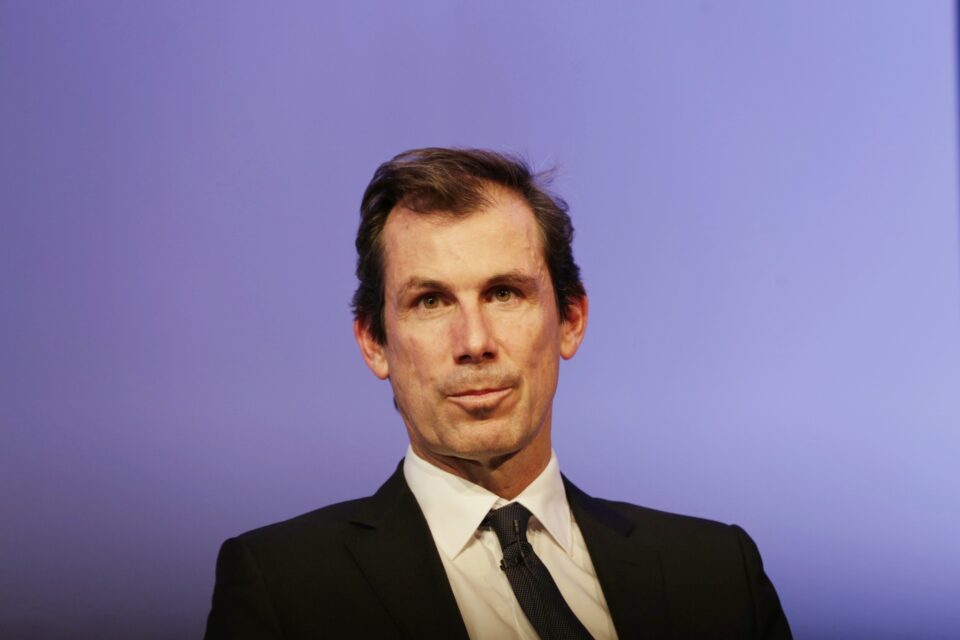Goldman Sachs (GS) announced today that it has lowered its EDP recommendation from 'buy' to 'neutral'. The North American bank also lowered its target price by 5 cents to 4.40 euros.
“While we appreciate Prospects A more positive return on renewables and we realize that the new investment plan must translate into Free cash flows Stronger”, the Secretariat decided to lower the recommendation for two reasons: “The new estimate of Earnings per share Growth does not mean until 2027, due to hydropower production and energy prices normalizing,” and “Although we appreciate lower capital expenditures and improved free cash flow, we expect leverage to remain higher than peers (Net economic debt/EBITDA By 4.3 times in 2026).
Analysts point out that since being added to their “buy” recommendations list, on March 21, 2019, EDP shares have risen by approximately 11% compared to 35% in the FTSE World Europe index, “reflecting a change in the global economic environment.” Interest rates (particularly challenging for long-term assets).
EDP continues to fall by 3.6% to €3.71 on the Lisbon Stock Exchange on Thursday.
EDP announced a reduction in investment to 17 billion euros by 2026, compared to 19 billion in previous expectations. The high cost of financing, high interest rates and low electricity prices led the company to change its plan.
Of the total, 80% of this value goes directly to the renewable energy, customers and energy management sectors, while 20% goes to grids. According to geography, 45% of it is allocated to the European Union market, 33% to the United States of America, 14% to Brazil, and 7% to the rest of the world.
“Updated plan 2024-2026, largely focused on improving the capital and strength of EDP’s balance sheet: investment slowdown, with €17 billion of total investments between 2024-2026. Disciplined and selective investment criteria, prioritizing returns over scale,” according to a presentation. EDP to the market.
On Thursday, EDP Renováveis announced a reduction in its net investment by three billion euros compared to what was expected in the strategic plan: 7 billion euros. The company now plans to invest €4 billion over the next three years in net terms, 40% less than plan.
Total investment in renewables is set to reach €12 billion for the period 2024-2026, “while maintaining a healthy balance sheet,” with a focus on improving efficiency.
Goldman Sachs (GS) announced on Friday that it has cut its price target for EDP Renováveis (EDPR) from €17.5 to €17. The recommendation remains at “Buy”.
“After 10 years of sustained acceleration in capital expenditures – and two capital raisings – EDP has changed its capital allocation to protect its balance sheet from increases in financing costs and a faster-than-expected decline in electricity prices. We believe the market will welcome this strategic update as it happens Re-Set “Financial and operational objectives, with a focus on higher-return, more self-financing projects,” the North American bank began in the note published today.
Noting that capital expenditure will fall from five gigawatts per year to three gigawatts per year, GS highlighted that 2026 EBITDA fell from three billion to 2.4 billion, with target profit reduced from 900 million to 700 million.
JS opinion? “We consider the new plan viable: our estimates for 2026 are higher than those of EDP.”
Analysts highlight that the decline in new capacities will allow EDP to focus on “higher-return projects.” The company sees “a more competitive scenario (especially in the US), thus supporting higher returns,” with a focus on data centers and the electrification wave.
Until 2026, EDPR plans to keep its financial debt stable at seven billion euros. In other words, the plan appears to be self-sufficient in terms of funding. This is possible due to the significant reduction in investments.

“Wannabe internet buff. Future teen idol. Hardcore zombie guru. Gamer. Avid creator. Entrepreneur. Bacon ninja.”

